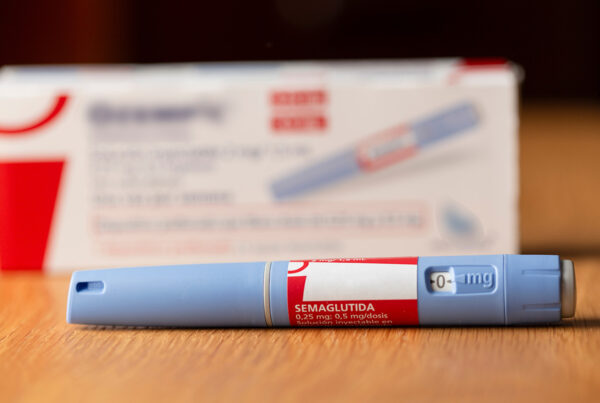Reaching 50 is a major milestone moment, often accompanied by reflections on personal achievements and a literal check on our health. Just as the annual odometer check ensures your vehicle’s longevity, it’s crucial to give your body a comprehensive once-over, too. Here’s a concise yet comprehensive view of the health screenings that can champion wellbeing beyond the golden age of 50.
Disclaimer: The information in this content is for general informational purposes only, not a substitute for professional medical advice. Always consult your doctor before making any changes to your lifestyle.
The Vital Importance of Health Assessments
Health screenings are like plot twists you anticipate in your favorite novel – they can reveal surprises or reaffirm what you’ve already suspected. For those 50+, these screenings are invaluable tools. They help intercept health issues before they escalate into something far harder to manage.
Age brackets often come with new health-related challenges, and the half-century mark isn’t any different. The body undergoes internal shifts, sometimes hindering its ability to defend against diseases efficiently. By implementing regular health screenings into your routine, you’re arming yourself with knowledge and taking the necessary strides toward maintaining a high quality of life.
Setting Aside Screen Time for Your Wellbeing
Imagine these health screenings as an investment in your most essential asset: your health. While it’s common to pour our resources into future savings, these health checks contribute directly to a healthy, active future. When detected early, most health issues can be managed with less invasive treatments and more successful outcomes.
1. Blood Pressure
Your blood pressure is the circulatory system’s front doorbell. It indicates how well your arteries and heart are getting along. Given its relationship with stroke, kidney disease, and heart attacks, blood pressure readings are more than just numbers; they are red flags or reassuring signals.
Understanding Blood Pressure Readings
The two numbers of a blood pressure reading – the systolic (top number) and diastolic (bottom number) – each carry their significance. The ideal reading is around 120/80 mmHg, and deviations can signify different elements of cardiovascular health.
Lifelong Management of Hypertension
If diagnosed with high blood pressure, fear not, for it is often manageable with lifestyle changes and sometimes medication. Regular monitoring is critical, and maintaining healthy habits is instrumental in keeping this vital sign in check.
2. Cholesterol Levels
Cholesterol is both friend and foe—needed for building healthy cells yet potentially a stealthy assailant in the cardiovascular battleground. Screenings for cholesterol levels help identify this silent risk factor for heart disease early.
Decoding the Good, the Bad, and the Necessary Cholesterol
Cholesterol exists in various forms, with High-Density Lipoprotein (HDL) being the good scout that removes bad cholesterol from your blood. On the flip side, if Low-Density Lipoprotein (LDL) is too high, it can lead to plaque buildup in your arteries.
Strategic Missions to Manage Cholesterol
Should the numbers skew unfavorably, lifestyle modifications, such as diet changes and exercise, can be potent tools in wrangling cholesterol back into line. In some instances, medication supplements these efforts to maintain optimal levels, ensuring arteries remain clear and blood flows freely.
3. Colonoscopy
The name alone carries with it a sense of seriousness, and rightly so, as a colonoscopy is your best defense against colorectal cancer, which is the third most common form of cancer. This procedure can detect polyps, which may become cancerous, and colorectal cancer in its early stages.
Preparing for Colon Health Exploration
While the procedure itself might be unsavory to think about, the preparation beforehand is as crucial as the test. Cleaning out the colon ensures clear visibility so that the doctor can make an accurate assessment.
Navigating the Results and Follow-Up
The good news for most is that the procedure yields normal results, providing an excellent baseline for future screenings. If polyps are found, they can be removed safely during the colonoscopy. Regular screening intervals will be recommended based on personal and family health history.
4. Mammograms
For women, the entry into the world of mammograms often begins around the age of 40, but it’s post-50 that these screenings take on an elevated level of significance. Mammograms are the gold standard in detecting breast cancer in its early, most treatable stages.
The Dish on Mammogram Frequency
At 50, it’s recommended that women begin screening every two years unless specific health concerns warrant more frequent checks. This consistency ensures any anomalies are identified quickly, improving the prognosis for survival and recovery.
Staying Calm Through the Mammo Maze
Intricacies of the mammography process aside, staying informed and speaking openly with your healthcare provider about any questions or fears eases the process. The peace of mind that comes with clear results is immeasurable, and the empowerment of early detection is invaluable.
5. Bone Density Tests
Osteoporosis doesn’t typically reveal itself until a bone is fractured. Consequently, bone density tests, often performed on the hip and spine, are critical in evaluating the strength and solidity of your bones.
Uncovering Osteoporosis and Its Silent Nature
Diminishing bone mineral density (BMD) is a sign of osteoporosis and osteopenia – conditions that weaken bones and heighten fracture risk. Post-menopausal women are particularly prone, and these tests can catch these conditions in their early stages.
The Road to Stronger Bones
Adopting a lifestyle that includes weight-bearing exercises, calcium and vitamin D, quitting smoking, and limiting alcohol are all parts of the strategy to maintain – and even improve – bone health. Your healthcare provider will help interpret the results and recommend the best course of action.
Benefits of Regular Screenings
Early Detection Saves Lives
Cancer screenings are less about finding cancer and more about finding it early. When detected at an early stage, many forms of cancer can be treated successfully and, in some cases, be cured.
Prevention is the Best Medicine
Screenings also serve as a preventive tool, often flagging elevated risks for diseases before symptoms even appear. Armed with this knowledge, individuals can proactively change their lifestyles or undergo preventive treatments, reducing the likelihood of developing a full-blown illness.
A Blueprint for Personal Health Pathways
Each result from a health screening is a chapter in the book of your health, providing detailed insights into your body’s function and possible areas for improvement. Regular health screens craft a personalized health blueprint, helping you and your healthcare provider tailor strategies unique to your body’s needs.
Recommended Frequency and Guidelines
Guidelines for screenings can seem a tad prescriptive, but they’re formed using comprehensive research that considers benefits, risks, and the impact on quality of life. Following these guidelines is essential, as they often start general and then tailor to individual health profiles.
Screening at 50… and Beyond
Fifty is a pivotal year for health screenings, and the recommended cadence only increases in importance with every decade. Screenings are recommended to be more frequent, but that’s because as we age, the risks and potential health issues match pace.
Understanding Why Guidelines Evolve
These guidelines are dynamic, shifting as new evidence or updates in technology occur. The emerging science is then factored into the equation, often leading to more refined and accurate assessment tools and practices.
The list of recommended health screenings for those over 50 may seem like added hassles at an age where the world should be slowing down, but, in truth, they are gateways to a more assured and vibrant future. Understanding your body is an evolving process; carving out time for regular health checks is a valuable part of that continuum. By engaging in these screenings, you’re making a statement – a vote of confidence in the years to come and a pledge to remain active in your own story of wellbeing.





